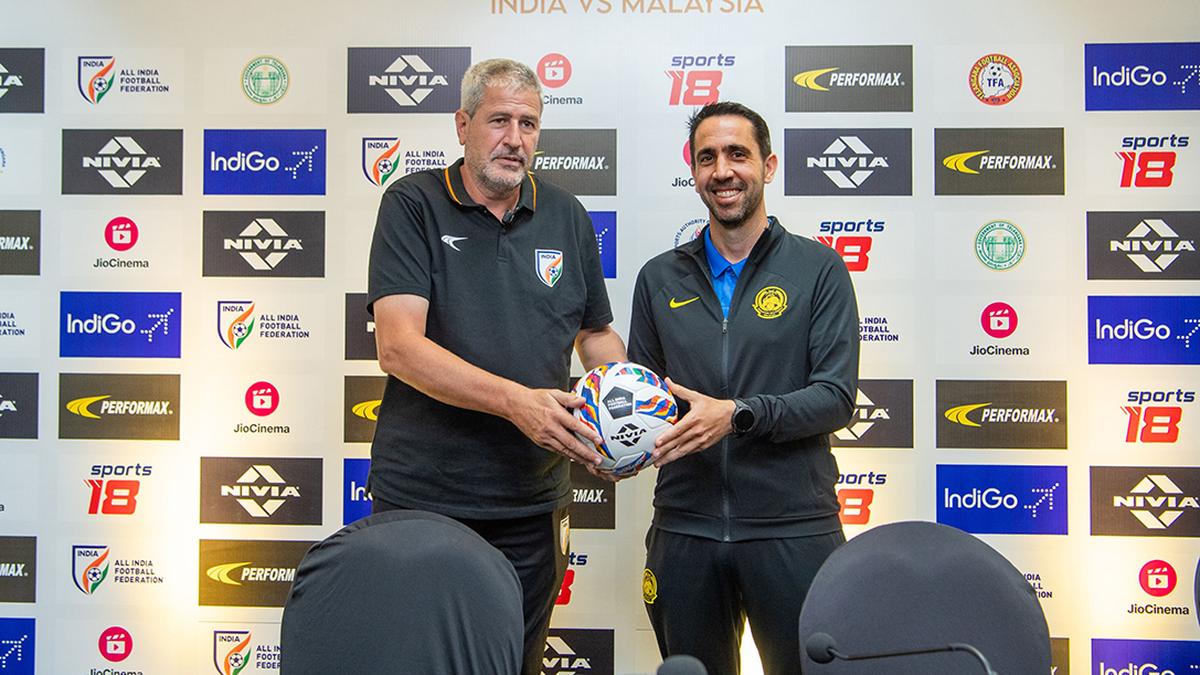Malaysia coach Pau Marti advocates naturalisation of foreign players after 1-1 draw with India

Malaysia head coach Pau Marti Vicente advocated the naturalisation of players in national teams, following its 1-1 draw with India in the international friendly here on Monday.
“I think they asked me as well before. I think nowadays if you see in world football, in every national team, they have a mix of players of foreigners and (ones of native) origin,” Vicente told reporters after the match.
Naturalised players are ones with no genetic links to a particular country but are allowed to represent their national team after living there for a specific period of time.
In 2018, the Malaysian Football Association allowed naturalised players to play in the national team after five years of residence, without giving up their home country’s passports.
For India, there is no such provision. For a foreigner to play in India, they have to surrender their foreign passport, live in the country for 12 months and then apply for an Indian passport, receiving which they will then be eligible.
“I think Malaysia has a good number of naturalised players and that is something (many) other teams like Sri Lanka are doing. It is their personal preference which they think can better them as a country,” Gurpreet had said in a previous interview, reserving his personal comment on the issue in the Indian context.
Malaysia’s decision got mixed reactions in that country. While some social media polls – by Harian Metro — supported the regulation, Malaysian football legend Santokh Singh vehemently criticised it
“We’ve got so many good local players who are capable of performing better than the foreigners… they are not getting a chance to play,” the 69-year-old told AFP. “Naturalisation of players is stupid.”
But on Monday, after the game, Vicente said the process had become more of a norm in the current times.
“In the case of Malaysia, the regulation says that after five years of living there, you can become Malaysian by right,” he said, “These players, they’ve been there playing for long, then they have the right to play if we think they’re good.
At the 2023 Asian Cup, Malaysia had the joint-highest number of naturalised players (14) – tied with Hong Kong – but failed to progress to the second round after finishing last in its group.
Against India, six of Malaysia’s starting 11 were either naturalised players or had one of their parents as foreigners.
Its only goal in the match – in the 19th minute – and its closest chance after that – in the second-half stoppage time – both came off naturalised players Paulo Josue and Fergus Tierney, respectively.
“I think in the end, every day in the world there are a lot of people moving around, changing countries, and this will become a reality almost in all national teams,” Vicente added.
Malaysia, ranked 133rd in the current FIFA rankings, is expected to rise in the next update, set to be out in 10 days, after a draw with higher-ranked India and a 3-1 win over Laos.
But it is still likely to get placed in Pot 2 for the AFC Asian Cup 2027 third-round qualifiers draw, with the matches scheduled in March.
“We want to win every game, but I think it’s a good result and I think when these qualifiers come, we need to be able to compete against this kind of competition and maybe another day, with a bit more luck and precision, we will get the win,” Vicente said.
“Luckily for us, we also have the AFF (ASEAN Football Federation Championship) in Malaysia, so we play another tournament in two weeks. I think it will also help us to be even more ready for March.”






